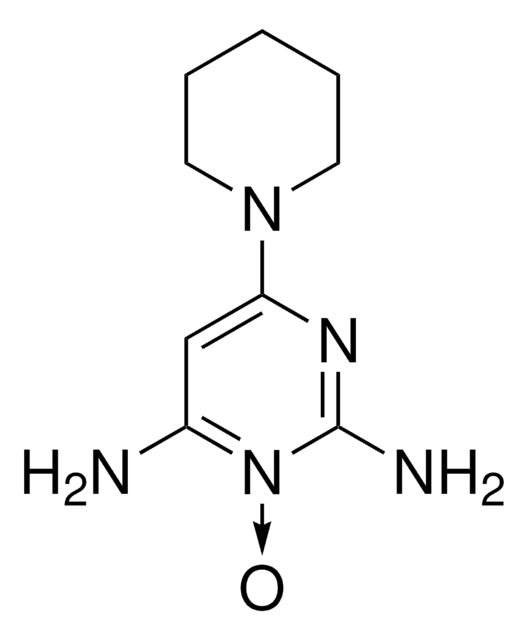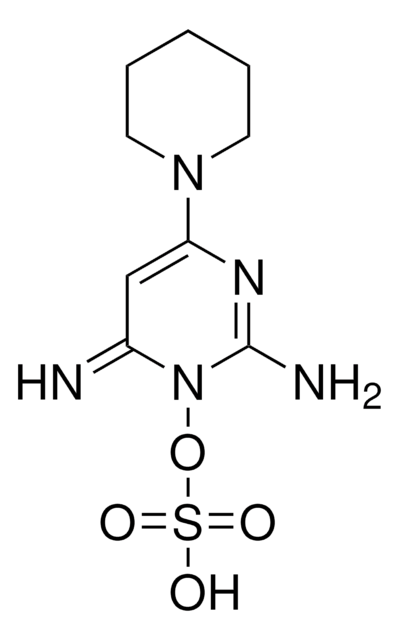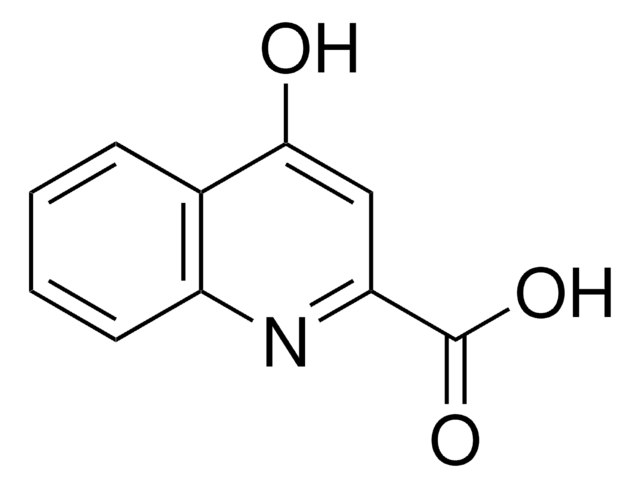M2300000
Minoxidil
European Pharmacopoeia (EP) Reference Standard
Synonym(s):
6-(1-Piperidinyl)-2,4-pyrimidinediamine 3-oxide, 6-(1-Piperidinyl)pyrimidine-2,4-diamine 3-oxide
About This Item
Recommended Products
grade
pharmaceutical primary standard
API family
minoxidil
manufacturer/tradename
EDQM
mp
272-274 °C (dec.) (lit.)
application(s)
pharmaceutical (small molecule)
format
neat
SMILES string
NC1=CC(=NC(=N)N1O)N2CCCCC2
InChI
1S/C9H15N5O/c10-7-6-8(12-9(11)14(7)15)13-4-2-1-3-5-13/h6,11,15H,1-5,10H2
InChI key
ZIMGGGWCDYVHOY-UHFFFAOYSA-N
Looking for similar products? Visit Product Comparison Guide
General description
Application
Biochem/physiol Actions
Packaging
Other Notes
related product
Signal Word
Warning
Hazard Statements
Precautionary Statements
Hazard Classifications
Acute Tox. 4 Oral - Eye Irrit. 2 - Skin Irrit. 2 - STOT SE 3
Target Organs
Respiratory system
Storage Class Code
11 - Combustible Solids
WGK
WGK 3
Regulatory Listings
Regulatory Listings are mainly provided for chemical products. Only limited information can be provided here for non-chemical products. No entry means none of the components are listed. It is the user’s obligation to ensure the safe and legal use of the product.
JAN Code
M2300000:
M2300000-50MG:
M2300000-1EA:
Choose from one of the most recent versions:
Certificates of Analysis (COA)
Sorry, we don't have COAs for this product available online at this time.
If you need assistance, please contact Customer Support.
Already Own This Product?
Find documentation for the products that you have recently purchased in the Document Library.
Our team of scientists has experience in all areas of research including Life Science, Material Science, Chemical Synthesis, Chromatography, Analytical and many others.
Contact Technical Service




